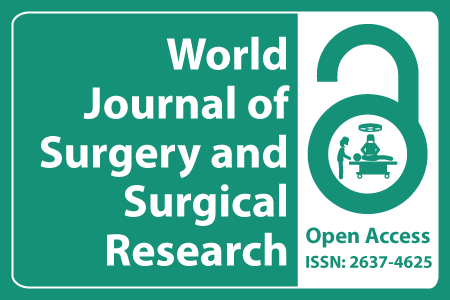
Journal Basic Info
- Impact Factor: 1.989**
- H-Index: 6
- ISSN: 2637-4625
- DOI: 10.25107/2637-4625
Major Scope
- General Surgery
- Emergency Surgery
- Obstetrics & Gynecology
- Ophthalmology
- Pediatric Surgery
- Oral & Maxillofacial Surgery
- Dental Surgery
- Surgery & Surgical Research
Abstract
Citation: World J Surg Surg Res. 2018;1(1):1026.DOI: 10.25107/2637-4625.1026
Utility and Untoward Effects of Lipid Emulsion Therapy in Patients with Poisoning by Cardioactive Drugs
Ozgur Karcioglu
Department of Emergency Medicine, University of Health Sciences, Istanbul, Turkey
*Correspondance to: Ozgur Karcioglu
PDF Full Text Review Article | Open Access
Abstract:
Lipid resuscitation therapy is the administration of an Intravenous Lipid Emulsion Therapy (IVLET) in order to alleviate clinical manifestations of toxicity from certain overdoses, including local anesthetics, Calcium-Channel Blockers (CCB), β-Blockers (BB), antipsychotics, antidepressants and other drugs. CCB and BB represent two of the most important classes of cardiovascular drugs involved in producing cardiodepressive syndrome. We performed a review and critical analysis of the most recent literature to analyse consequences, use and potential adverse effects associated with this treatment modality in poisoning with cardioactive drugs. The present evidence supports use of IVLET in local anesthetic overdoses and in lipophilic cardiotoxin intoxication-including CCB and BB-when there is an immediate threat to life, and other therapies have failed. In cases of cardiac arrest from a suspected poisoning, consider administration of intravenous lipid emulsion during the resuscitation. Patients with hypotension refractory to volume loading, correction of acidosis and calcium salts should be treated using High-dose insulin Euglycemia Therapy (HET). Adverse effects from standard IVLET include hypertriglyceridemia, fat embolism, infection, local vein irritation, acute pancreatitis, electrolyte disturbances and hypersensitivity and allergic reactions. Meanwhile, disturbed laboratory values associated with IVLET comprise hyperlipemia, hypercoagulability, and rarely, thrombocytopenia in neonates. IVLET may be considered for resuscitation by emergency physicians in resuscitation of severe hemodynamic compromise by lipid-soluble cardioactive xenobiotics. The purpose of this review is to highlight recent advances in our understanding of the efficacy and safety of IVLET, with special regard to its use in toxicity with cardioactive compounds.
Keywords:
Lipid emulsion therapy; Lipid emulsion; Poisoning; Intoxication; Calcium-channel blockers; β-blockers
Cite the Article:
Karcioglu O. Utility and Untoward Effects of Lipid Emulsion Therapy in Patients with Poisoning by Cardioactive Drugs. World J Surg Surgical Res. 2018; 1: 1026.













